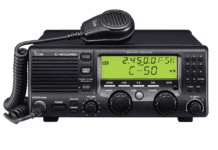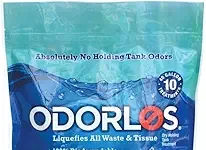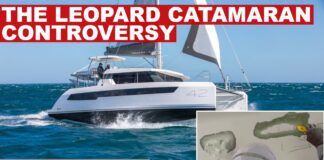In the magazine business, our calendar is set forward several months, so while summer sailing is reaching its peak, were stowing away editorial acorns for winter. Articles on cold-weather sea boots and heavy-weather sailing are on the horizon, along with a two-part series on inverter-chargers.
The upcoming story that bothers me most, however, is a long-overdue update on maritime websites. Its something of a sore subject because were undergoing the painful revamping of our own website (a process akin to rebuilding your diesel engine in the middle of your galley), but also because the deeper we dig into the world of websites, blogs, and reader forums, the more trouble we find.
The Internet is a source of good advice on everything from where to find winch parts to what safety precautions to take when cruising the Red Sea. Its also the source for some of the worst advice and most misleading and deceptive advertising youll find anywhere. And theres the rub: Which voice do you put your trust in?
Staunch advocates of the worldwide wander argue that information on the Internet is self-correcting. If someone starts spouting bad information, sooner or later, someone else will set them straight-if not on the offending website, then on some other site. That might be the case in some fields, but the sailing discussion boards and forum populations are generally so small that a few very loud “experts” can steer the conversation-shoals and reefs be damned.
A recent report in the New York Times introduces an even more troubling trend: websites that are getting paid directly or indirectly to promote certain products without fully disclosing their relationship with the companies that make these products (www.nytimes.com/2009/07/13/technology/internet/13blog.html).
While the Federal Trade Commission (FTC) has rules that call for full disclosure under its truth-in-advertising guidelines, they don’t apply to the type of product promotion that is happening online. And conventional websites are just the tip of the iceberg.
Bloggers are deciding for themselves where to draw the line between what constitutes paid advertising and what is journalism. Many of these so-called “independent” blog sites are being paid per post without revealing the names of their sponsors. Stealth advertising and product placements are popping up at every turn-in online forums, in e-mails, in text messages.
While the FTC is working to curb some of the abuse, theyll have a hard time staying ahead of the game. A draft review of new truth-in-advertising guidelines was posted for public comments this year. Staff recommendations are to be presented to the commissioners, perhaps for a vote by early fall.
Having run commercial boats and spent 11 years cruising with my wife, I know well that the bond of trust between fellow mariners is extraordinary. And now, as we introduce our two boys the sport, I am again reminded of the unique sense of community and shared responsibility among sailors. Perhaps this is why the apparent lapses of integrity on some boating or maritime websites and blogs bothers me so much.
Thankfully, Practical Sailor is not in the business of selling anything except what you have in your hand: reliable, forthright information based on independent, objective research and testing. We have no other interest than to provide our readers with the best available information on a wide range of sailboats and sailing-related products. If what you need is not in this months issue, weve got it in our files, or we know where to find it. No need to wander the web, or wonder who to trust. Just e-mail me at [email protected] log on to www.practical-sailor.com, and youll get a straight answer. But watch out for that diesel engine in the galley.
-Darrell Nicholson
Cover photo: Solo-circumnavigator Tony Gooch sails
Taonui, a 39.9-foot aluminum sloop, off Tobermory, Scotland; follow Taonuis bluewater adventures at
www.taonui.com; photo courtesy of Amanda Swan Neal / Mahina Expeditions (www.mahina.com).
www.mahina.com).
www.mahina.com).








































